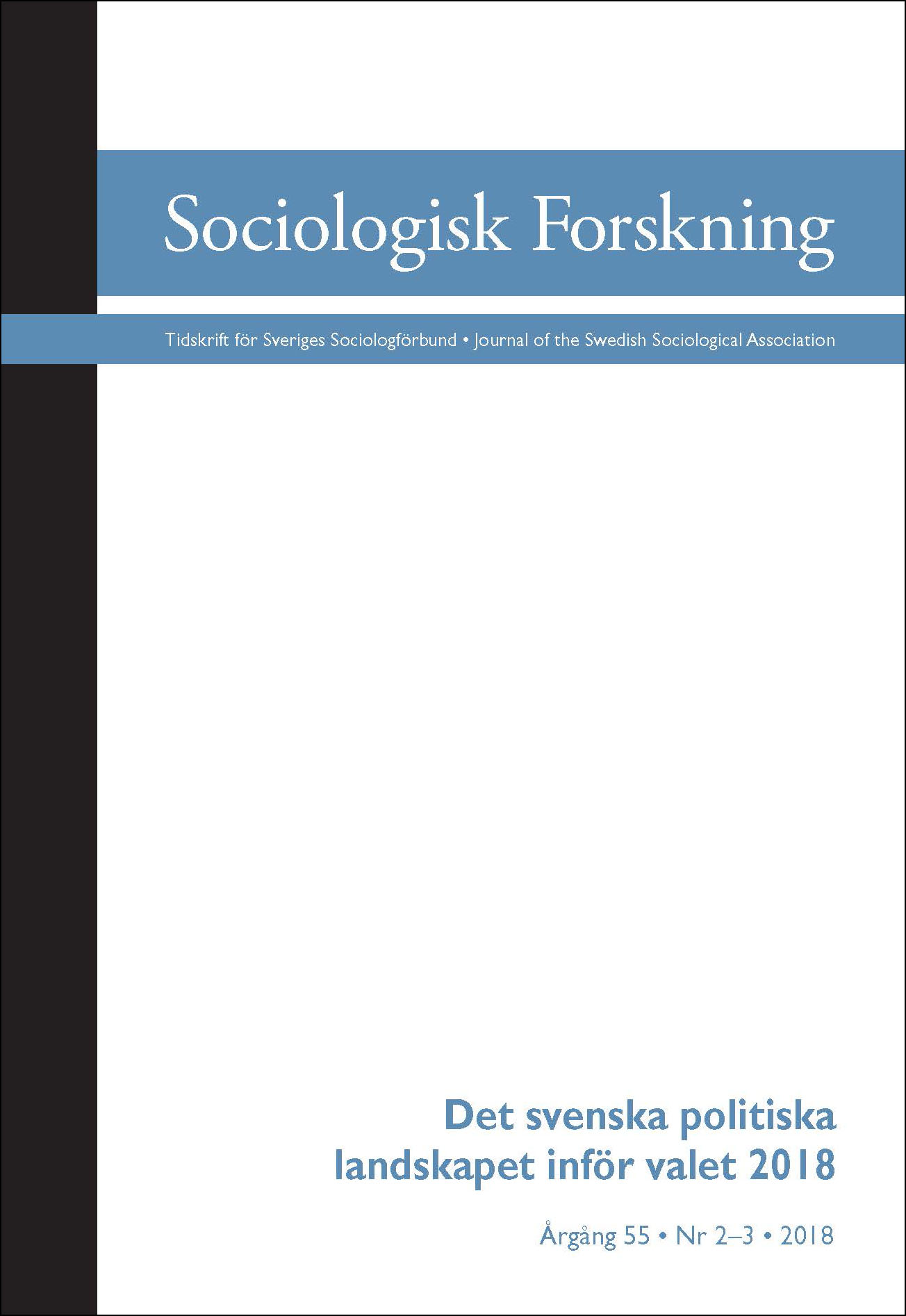Från snack till organiserade nätverk
Om tankesmedjors arbete för att värva andra för sina idéer
DOI:
https://doi.org/10.37062/sf.55.18197Keywords:
think tanks, organizing networks, agenda setting, members, independencyAbstract
From chatter to organized networks. How think tanks work to enrol others
Think tanks, both inside and outside the Swedish context, appear as something of a conundrum. Definitions and conceptual understandings of what think tanks actually do have not been adequately developed. One of the most urgent and unanswered questions regards how we understand the ability of think tanks to get other actors in the political landscape to use their ideas? Drawing on insights from 13 think thanks in Stockholm, the intention of this paper is to provide an empirically based and theoretically informed answer to this question. The results show that the activities colloquially termed ”networking” and ”agenda setting”, can be understood from an organisational perspective. These activities come across as intangible with uncertain outcomes but cannot be seen as random attempts to bridge think tankers and policy actors, but as decided actions designed to make other actors use their ideas in the future. At the same time, the organized relationships to other actors are ambiguous, as too close relationships may risk the think tank’s appearance of independency.
Downloads
Published
How to Cite
Issue
Section
License
All content in Sociologisk Forskning is published with immediate open access, under the Creative Commons license CC BY-NC-ND 4.0.
All content may be read, downloaded, shared and printed for non-commercial purposes, free and without fees. Contents may not be altered. When content is reused, author, source and a link to the copyright licence must be provided. The author retains copyright to their content. No publication fees are charged.





